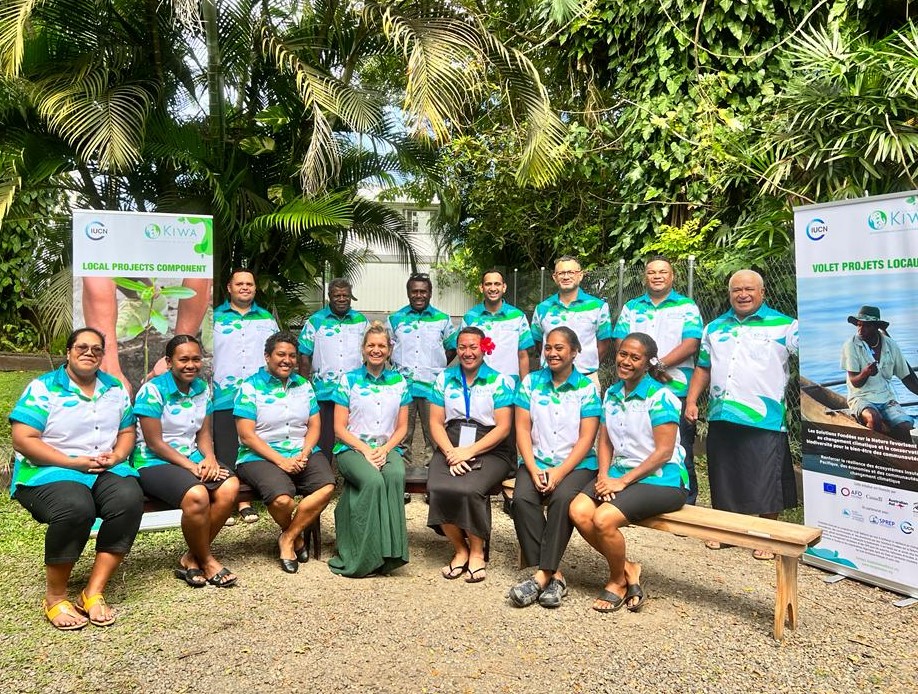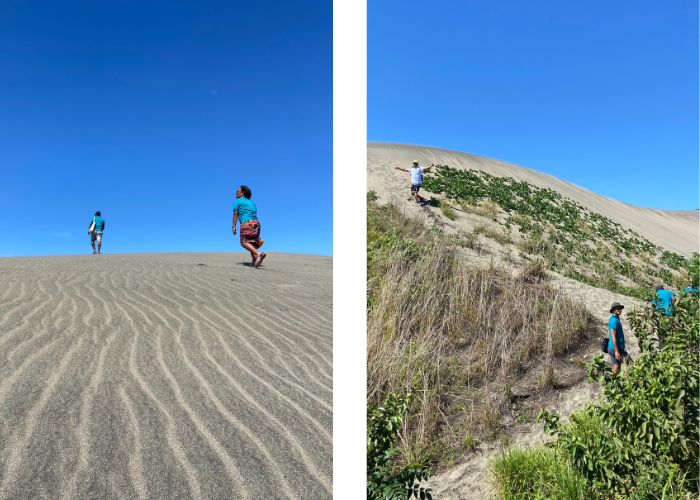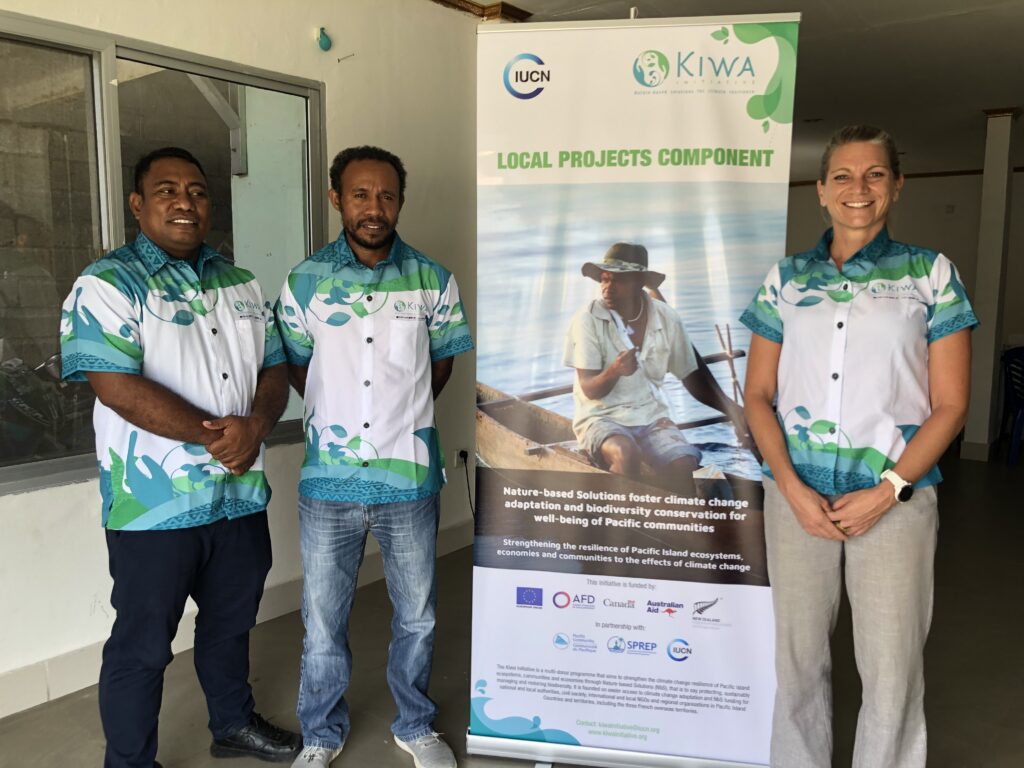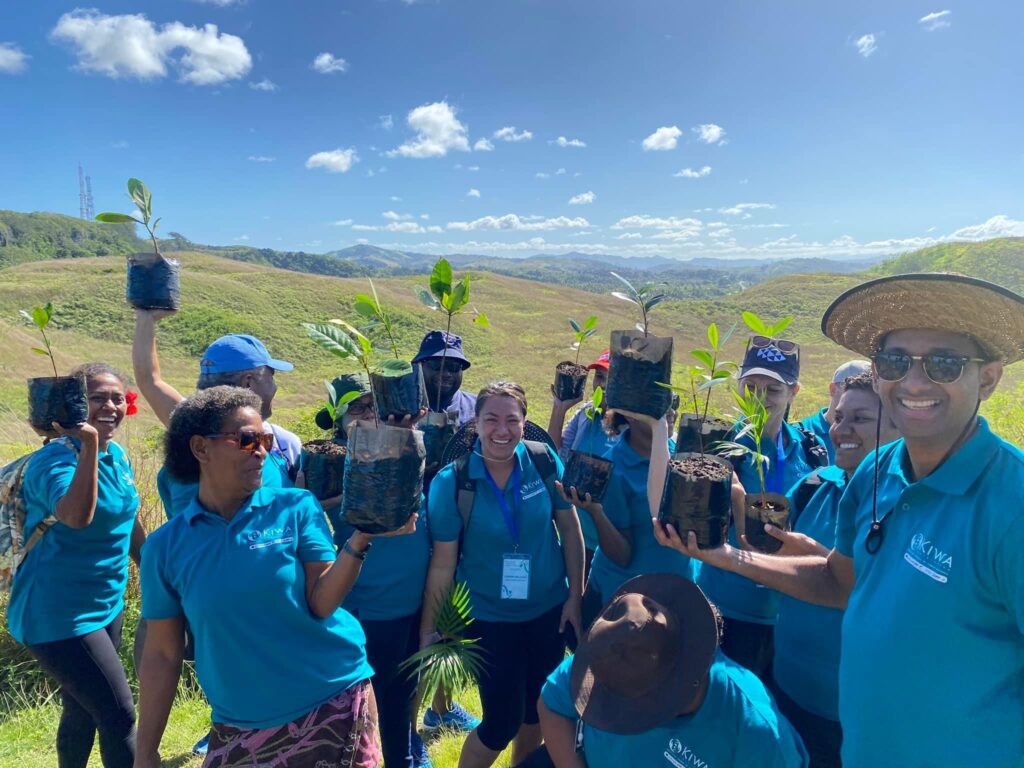I recently attended a gathering in Suva, Fiji, of conservation leaders from Fiji, Vanuatu, Tonga, Samoa, the Solomon Islands, Palau and Timor-Leste for the launch of 10 new projects designed to strengthen the resilience of Pacific island ecosystems, communities, and economies to climate change by using nature-based solutions.

All grantees of the Kiwa Initiative Local Project Component and International Union for Conservation of Nature (IUCN) staff gathering in Fiji.
We are excited to be working with local partner Konservasaun Flora no Fauna (KFF) over the next 30 months to carry out marine resource management work in Timor-Leste to protect, sustainably manage and restore biodiversity.
This multi-donor programme run by the Kiwa Initiative also provides invaluable opportunities to share learnings about customary management between Timor-Leste and other countries in the Pacific, and to link up communities who are reinvigorating these practices.
In Timor-Leste, people are increasingly observing a traditional, community-level social code that establishes local rules and conventions, including resource use practices, called tara bandu.
Against the backdrop of devastating floods in Pakistan, launching this project in Fiji provided a ray of hope. All of the Pacific participants had lived experiences of the devastating effects of rising seawater levels, severe flooding and loss of land and livelihoods. Seeing their commitment, passion, enthusiasm, pragmatism and innovation, I emerged from the workshop with a renewed sense of positivity.
Nature-based solutions are nothing new, and especially not in Pacific island societies, where people have always cherished a lifestyle in harmony with nature. Fiji has a rich history of customary management and is where the Locally Managed Marine Area Network, which inspired Madagascar’s MIHARI network, began.

Visiting a project site at the Sigatoka Sand Dunes National Park. As the largest sand dunes in the South Pacific, they provide a critical ecosystem and natural barrier to protect people from rising seawater levels.
I learned over the course of the workshop that almost every project proposal reframed an existing customary practice as a nature-based solution for climate change adaptation, which made it easier to source funding. This approach also ensures that the projects are not only carried out with nature in mind, but embedded in indigenous traditions, which is a win-win solution.
We were fortunate to visit a project site at the Sigatoka Sand Dunes National Park. As the largest sand dunes in the South Pacific, they provide a critical ecosystem and natural barrier to protect people from rising seawater levels.
This visit gave the grantees a great chance to exchange knowledge and best practices, and enjoy the fabulous Fijian hospitality. The traditional ceremonies, warmth and humour provided a special touch to the workshop and showed how business in the Pacific is done: face to face and side by side whilst sitting in a circle with a bowl of Fiji’s national drink kava. I’m very conscious of my carbon footprint, especially when attending events aimed at combating climate change. But at this event, the benefits of sharing experiences and forming connections outweighed my concerns.

From left – Osaias Soares, our Conservation Science Senior Manager, Alito Rosa, the Executive Director of Konservasaun Flora no Fauna, and me.
On my return to Timor-Leste, we celebrated the start of our new partnership with KFF by holding our own workshop at our office, which included a photo shoot wearing new project shirts with staff who couldn’t travel to Fiji due to visa issues. We had another formal project launch at the State Secretariat of Environment.
With the Kiwa Initiative’s funding, we will support 10 communities in Timor-Leste to strengthen their resilience to the effects of climate change by better protecting ecosystems, managing fisheries, and diversifying livelihoods.
The partnership with KFF in mangrove monitoring and rehabilitation will expand our ecological and habitat monitoring programme in Timor-Leste. It builds on our learning from the IKI-funded Seagrass Ecosystem Services Project, and drives forward our global work in blue carbon ecosystem management.
Better management of fisheries and preservation of the biodiversity that underpins them, (including coral reefs, seagrass and mangrove habitats), improves food security, community resilience to climate shocks, and people’s ability to adapt to changes.
As an organisation, we’re working to create a world where small-scale fishers have bigger catches, better livelihoods and improved food security, and where healthy oceans teem with life for generations to come. I believe that customary practices and nature-based solutions benefitting people and nature alike are the key to making this vision a reality. As we move forwards with our pacific island neighbours I have a renewed sense of purpose that great things can come from locally led initiatives connected at scale.


